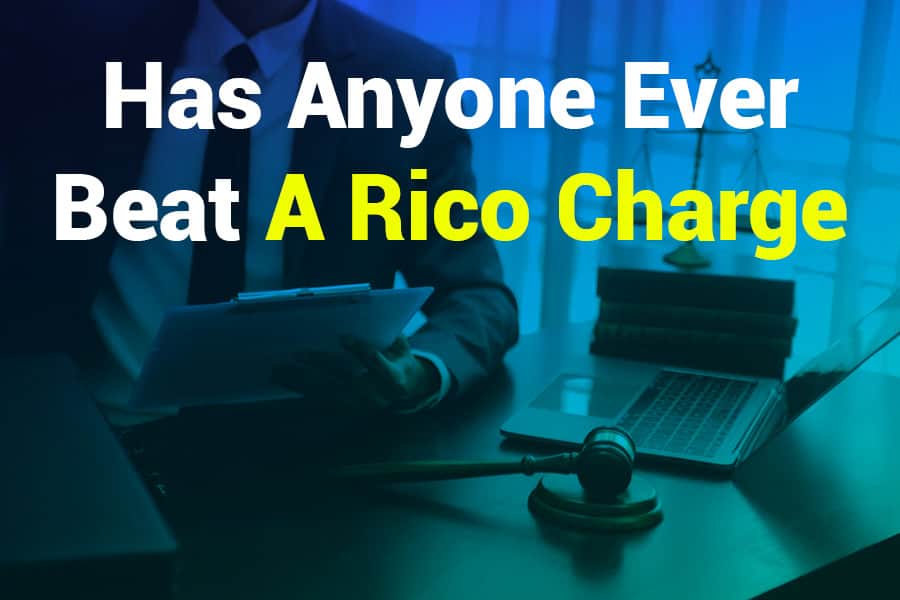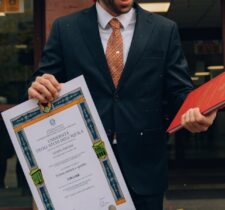RICO (Racketeer Influenced and Corrupt Organizations Act) charges are notoriously challenging to overcome due to their complexity and the extensive evidence required by federal prosecutors. Originally enacted to combat organized crime, RICO law has since broadened to include various forms of white-collar and corporate crime. But has anyone ever beaten a RICO charge? This article explores what it takes to fight a RICO charge, notable cases, defense strategies, and factors that can influence the outcome. Here’s an in-depth look at what defendants face when contesting these serious federal charges.
Has Anyone Ever Beat a RICO Charge?
Yes, it is possible to beat a RICO charge, although it’s a difficult process due to the federal government’s strong resources and the extensive burden of proof required. Some defendants have successfully contested RICO charges, often through skillful legal strategy, strong evidence disproving involvement, or weaknesses in the prosecution’s case. However, fighting a RICO charge requires a highly skilled legal team and often depends on the specifics of the case.
What is a RICO Charge? Understanding the Basics
Defining the RICO Act
The Racketeer Influenced and Corrupt Organizations (RICO) Act was passed in 1970 to combat organized crime. It allows prosecutors to charge individuals involved in criminal enterprises with a series of related crimes under a single case, making it an essential tool in dismantling criminal organizations.
Types of Crimes Under RICO
RICO charges can encompass a range of criminal activities, from fraud and money laundering to murder and drug trafficking. The law allows multiple crimes to be bundled under one indictment, aiming to show a pattern of criminal behavior rather than isolated incidents.
The Significance of “Pattern of Racketeering Activity”
The prosecution must demonstrate that the defendant engaged in at least two qualifying crimes within ten years to establish a pattern. This key element can be challenging to prove, making it a crucial focus for the defense.
RICO in Modern Contexts
While RICO was initially used against organized crime families, it has since expanded to address white-collar crime, corrupt businesses, and even some political cases. This broad scope makes RICO a powerful yet controversial law.
How Do People Fight a RICO Charge? Defense Strategies Explained
Challenging the Pattern Requirement
One of the primary defense strategies against RICO is disputing the alleged pattern of racketeering. Defense attorneys often argue that the incidents cited do not constitute a pattern, aiming to reduce the case’s impact.
Attacking the Credibility of Evidence
RICO cases rely heavily on witness testimonies, recorded conversations, and documents. The defense can work to undermine this evidence, demonstrating inconsistencies or questioning the reliability of witnesses.
Utilizing Statute of Limitations
RICO cases are subject to statutes of limitations, typically around five years. If some alleged activities fall outside this timeframe, they may be excluded, weakening the prosecution’s case.
Filing Motions to Dismiss
Defense teams may file pretrial motions to dismiss parts of the indictment if they believe the charges are insufficiently supported. Successful dismissals of certain counts can reduce the severity of the case.
Emphasizing Lack of Involvement
Another approach is demonstrating that the defendant was not aware of or involved in the alleged criminal activities. By highlighting the distance between the defendant and the crimes, defense attorneys can reduce their client’s perceived involvement.
Notable Cases Where Defendants Beat a RICO Charge
John Gotti – The Teflon Don
Known as the “Teflon Don,” John Gotti managed to beat several RICO charges through careful legal maneuvering and, allegedly, jury tampering. His initial success underscored the challenges prosecutors face in proving complex RICO cases.
Michael Milken – Junk Bond King
In the 1980s, financier Michael Milken faced RICO charges related to securities fraud. While he eventually settled, he did manage to avoid a complete conviction under RICO, highlighting how plea agreements can sometimes be advantageous in complex financial cases.
Other Cases of Defeated RICO Charges
From politicians to business leaders, there are cases where defendants have successfully avoided RICO convictions, often through strong defense teams or procedural technicalities that undermined the prosecution’s case.
Why Beating a RICO Charge is So Challenging
Complexity and Scope of RICO Investigations
RICO cases involve extensive investigation, often with years of gathered evidence. The scope and detail of these investigations make it challenging for defendants to counteract the charges.
Resources of Federal Prosecutors
Federal prosecutors have significant resources to pursue RICO cases, from advanced forensic teams to cooperation with various law enforcement agencies. This makes fighting a RICO charge an uphill battle.
Strict Requirements for Dismissing RICO Charges
Courts are generally hesitant to dismiss RICO charges due to the seriousness of the alleged crimes. Defendants face substantial hurdles in seeking early dismissals, leaving them to prepare a robust defense strategy for trial.
Impact of Public Opinion and Media Coverage
High-profile RICO cases often attract media attention, potentially influencing public opinion. This can create additional pressure on the defense, as public perception may lean toward the presumption of guilt.
Key Legal Elements in a RICO Case
Enterprise” Requirement
The prosecution must establish that the defendant was part of an “enterprise” engaged in racketeering activities. Defense teams often target this element, arguing that no organized enterprise existed.
Pattern of Racketeering Activity
A RICO charge demands proof of a “pattern,” which can be complex to demonstrate. Defense strategies frequently include dismantling the pattern and emphasizing the isolated nature of alleged actions.
Proving the Defendant’s Intent
RICO charges require evidence of intent to participate in the criminal enterprise. Defendants may argue that they lacked any intent or knowledge of illegal activities, distancing themselves from the alleged organization.
Final Thoughts
RICO cases are intense, requiring a defense strategy that addresses both legal technicalities and the broader narrative of innocence. While beating a RICO charge is undoubtedly challenging, it’s possible with a skilled legal team that can undermine the prosecution’s evidence, argue against the pattern of activity, or question the very existence of an enterprise. For those facing RICO charges, understanding the complexities and assembling a robust defense team can be the first steps toward an acquittal.
Frequently Asked Questions
Q. What are the main defenses against a RICO charge?
A. Defenses include challenging the pattern of racketeering, questioning evidence credibility, attacking enterprise definitions, and filing motions to dismiss.
Q. What are the penalties for RICO convictions?
A. Depending on the case, penalties can include lengthy prison sentences, significant fines, asset forfeiture, and further civil consequences.
Q. How long does a RICO case take?
A. RICO cases often span years due to their complexity, involving extensive investigations and prolonged court proceedings.
Q. Why are RICO charges so difficult to beat?
A. RICO charges are tough to beat due to their broad scope, extensive evidence requirements, and the resources available to federal prosecutors.








